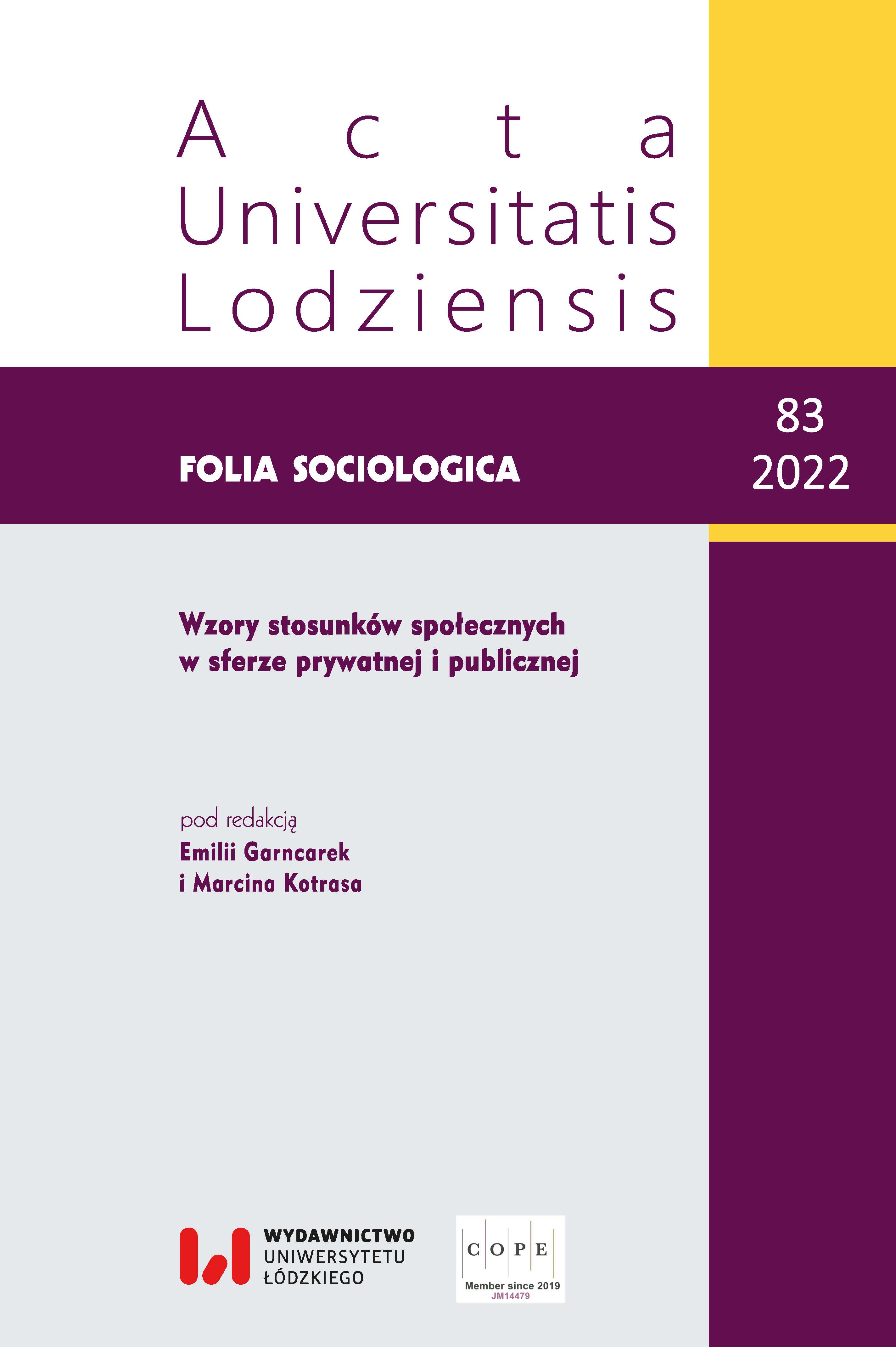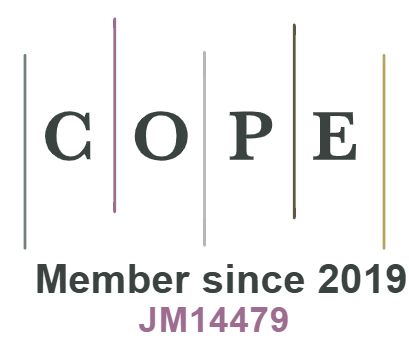Anatomia pasożytnictwa w stadium kapitalizmu sfinansjalizowanego: roszczeniowość i destrukcyjny charakter permisywnego neoliberalizmu
DOI:
https://doi.org/10.18778/0208-600X.83.01Słowa kluczowe:
finansowy kapitalizm, neoliberalizm, błędna alokacja kapitału, negatywne skutki dla środowiska, tendencja ekocydalnaAbstrakt
Artykuł niniejszy jest przyczynkiem do debaty o negatywnych konsekwencjach współczesnych nierówności ekonomicznych oraz mechanizmach służących ich legitymizowaniu. Analizuje on, w jaki sposób zdyskredytowane i szkodliwe neoliberalne podejścia podażowe w ekonomii są nadal traktowane jako prawomocne doktryny ekonomiczne, przyczyniając się tym samym do podtrzymywania hegemonii sprawowanej przez sektor finansowy, zwłaszcza w Zjednoczonym Królestwie. Artykuł ten wprowadza pojęcie „permisywnego neoliberalizmu”, przez które rozumie zarówno legalne praktyki wykorzystywania aktywów finansowych w celu realizacji krótkoterminowych zysków, jak i polityczną ochronę rozpiętą nad kryminalną i kryminogenną działalnością na rynkach finansowych. Opisuje najbardziej bulwersujące przypadki drapieżczej finansjalizacji jako przykłady usankcjonowania przez neoliberalne państwo bezwzględnego procesu ekonomicznego wyzysku i tolerowania w coraz większej mierze systemowego uzależnienia ekonomii politycznej Zjednoczonego Królestwa od londyńskiego City z towarzyszącym mu archipelagiem tajnych zamorskich jurysdykcji.
W drugiej, krótszej części niniejszego artykułu zaprezentowano proces formowania się postawy roszczeniowej wśród reprezentantów gospodarczych i politycznych elit oraz roli, jaką psychopatyczny narcyzm odgrywa w procesie uprawomocnienia ich hegemonicznej pozycji społecznej. Systemowa niezdolność do takiego inwestowania zasobów materialnych i finansowych ludzkości, które uchroniłoby ją od skutków nadciągających zmian klimatycznych, skłaniają do sformułowania wniosku, że kapitalizm w swoim obecnym stadium jest nie tylko pasożytem uniemożliwiającym osiągnięcie zrównoważonego wzrostu gospodarczego, ale że wręcz stanowi on zagrożenie dla samych ekologicznych warunków przetrwania ludzkości jako gatunku.
Bibliografia
Babiak P., Neumann C., Hare R. (2010), Corporate Psychopathy: Talking the Walk, “Behavioural Sciences and the Law”, vol. 28, pp. 174–193, https://doi.org/10.1002/bsl.925
Google Scholar
DOI: https://doi.org/10.1002/bsl.925
Birch K., Muniesa F. (eds.) (2020), Assetization. Turning Things into Assets in Technoscientific Capitalism, MIT Press, Cambridge, https://doi.org/10.7551/mitpress/12075.001.0001
Google Scholar
DOI: https://doi.org/10.7551/mitpress/12075.001.0001
Blain B. (2022), The Crypto Bubble is Bursting – Open Your Eyes and Spot the Ugly Naked Truth, https://morningporridge.com/blog/blains-morning-porridge/the-crypto-bubble-is-bursting-open-your-eyes-and-spot-the-ugly-naked-truth/ (accessed: 8.12.2022).
Google Scholar
Brittain-Catlin W. (2005), Offshore: The Dark Side of the Global Economy, Picador, New York.
Google Scholar
Bullough O. (2019), Money Land: Why Thieves & Crooks Now Rule the World & How to Take it Back, Picador, London.
Google Scholar
Bullough O. (2022), Butler to the World: The book the oligarchs don’t want you to read – how Britain become the servant of tycoons, tax dodgers, kleptocrats and criminals’, Picador, London.
Google Scholar
Burgis T. (2020), Kleptopia: How Dirty Money is Conquering the World, William Collins, London.
Google Scholar
Christensen J. (2011), The Looting Continues: Tax; and Corruption, “Critical Perspectives on International Business”, vol. 7(2), pp. 177–196, https://doi.org/10.1108/17422041111128249
Google Scholar
DOI: https://doi.org/10.1108/17422041111128249
Christophers B. (2018), The New Enclosure: The Appropriation of Public Land in Neoliberal Britain, Verso, London–New York.
Google Scholar
Christophers B. (2020), Rentier Capitalism. Who Owns the Economy and Who Pays for It, Verso, London–New York.
Google Scholar
Cunliffe J. (2021), Is ‘crypto’ a financial stability risk? – speech by Jon Cunliffe, https://www.bankofengland.co.uk/speech/2021/october/jon-cunliffe-swifts-sibos-2021 (accessed: 8.12.2022).
Google Scholar
Dorling D. (2014), Inequality and the 1%, Verso Books, New York.
Google Scholar
Durand C. (2017), Fictitious Capital. How Finance is Appropriating our Future, Verso, London.
Google Scholar
Foroohar R. (2016), Makers and Takers. How Wall Street Destroyed Main Street, Crown, New York.
Google Scholar
Foroohar R. (2022), Talk of doing good rings hollow at Davos, “Financial Times”, 30 May.
Google Scholar
Foster D. (2018), Just look at housing to see the true cost of privatisation, “The Guardian”, 12 June.
Google Scholar
Funnell W., Jupe R. (2009), In Government we Trust: Market Failure and the Delusions of Privatisation, Pluto Press, London.
Google Scholar
Gabor D., Kohl S. (2022), My Home is an Asset Class. The Financialization of Housing in Europe, http://extranet.greens-efa-service.eu/public/media/file/1/7461 (accessed: 8.12.2022).
Google Scholar
Hare R.D. (2002), The predators among us, Keynote address to the Canadian Police Association Annual General Meeting, St. John’s, Newfoundland and Labrador, 27 August.
Google Scholar
Hebous S., Johannesen N. (2021), At your service! The role of tax havens in international trade with services, “European Economic Review”, vol. 135, https://doi.org/10.1016/j.euroecorev.2021.103737
Google Scholar
DOI: https://doi.org/10.1016/j.euroecorev.2021.103737
Howson P. (2022), Cryptocurrency price collapse offers hope for slowing climate change – here’s how, “The Conversation”, 17 May.
Google Scholar
Hudson M. (2015), Killing the Host: How Financial Parasites and Debt Bondage Destroy the Global Economy, ISLET, Dresden.
Google Scholar
Huffschmid J. (2002), Politische Ökonomie der Finanzmärkte, VSA-Verlag, Hamburg.
Google Scholar
Keen S. (2017), Can we avoid another financial crisis?, Polity, London.
Google Scholar
Laville S. (2020), England’s privatised water firms paid £57bn in dividends since 1991, “The Guardian”, 1 July.
Google Scholar
Mazzucato M. (2013), The Entrepreneurial State. Debunking Public vs Private Sector Myths, Anthem & Penguin, London.
Google Scholar
Mazzucato M. (2018), The Value of Everything. Making and Taking in the Global Economy, Allen Lane, London.
Google Scholar
McCauley R. (2021), Why bitcoin is worse than a Madoff-style Ponzi scheme, https://www.ft.com/content/83a14261-598d-4601-87fc-5dde528b33d0 (accessed: 8.12.2022).
Google Scholar
McNamara S. (2016), The Law and Ethics of High Frequency Trading, “The Minnesota Journal of Law, Science & Technology”, https://scholarship.law.umn.edu/mjlst; https://doi.org/10.2139/ssrn.2565707 (accessed: 8.12.2022).
Google Scholar
DOI: https://doi.org/10.2139/ssrn.2565707
Mellor M. (2010), The Future of Money: From Financial Crises to Public Resource, Pluto Press, London.
Google Scholar
Murphy L., Nagel T. (2002), The Myth of Ownership: Taxes and Justice, Oxford University Press, Oxford.
Google Scholar
DOI: https://doi.org/10.1093/0195150163.001.0001
Ogle V. (2017), Archipelago Capitalism: Tax Havens, Offshore Money, and the State, 1950–1970s, “The American Historical Review”, vol. 122(5), pp. 1431–1458, https://doi.org/10.1093/ahr/122.5.1431
Google Scholar
DOI: https://doi.org/10.1093/ahr/122.5.1431
Parker D. (2004), The UK’s Privatisations experiment: the passage of time permits of the sober assessment, “CESifo Working Paper”, no. 1126, https://www.google.pl/url?sa=t&rct=j&q=&esrc=s&source=web&cd=&ved=2ahUKEwin--eNvOz7AhW6QvEDHQkwDcMQFnoECAwQAQ&url=https%3A%2F%2Fwww.ifo.de%2FDocDL%2Fcesifo1_wp1126.pdf&usg=AOvVaw2CRGJVZp9S0sTwKXFT8jJP (accesed: 8.12.2022).
Google Scholar
Pettifor A. (2017), The Production of Money. How to Break the Power of the Bankers, Verso, London.
Google Scholar
Picardo E. (2022), 4 Big Risks of Algorithmic High-Frequency Trading, Investopedia, https://www.investopedia.com/articles/markets/012716/four-big-risks-algorithmic-highfrequency-trading.asp (accessed: 8.12.2022).
Google Scholar
Pistor K. (2020), The Code of Capital, Princeton University Press, Princeton.
Google Scholar
Raworth K. (2017), Doughnut Economics. Seven Ways to Think Like a 21st Century Economist, Random House, London.
Google Scholar
Ryan-Collins J., Lloyd T., Macfarlane L. (2017), Rethinking the Economics of Land and Housing, Zed Books, London.
Google Scholar
Sagar P., Christensen J., Shaxson N. (2013), British Government Attitudes to British Tax Havens in British Dependent Territories from 1967–1975, [in:] J. Leaman, A. Waris (eds.), Tax Justice and the Political Economy of Global Capitalism, 1945 to the Present, Berghahn Books, New York–Oxford.
Google Scholar
Shaxson N. (2011), Treasure Islands. Tax Havens and the Men who Stole the World, Bodley Head, London.
Google Scholar
Shaxson N. (2018), The Finance Curse. How Global Finance is Making Us All Poorer, Bodley Head, London.
Google Scholar
Stafford P. (2020), FCA researchers outline $5bn “tax” imposed by high-speed trading, “Financial Times”, January 27.
Google Scholar
Strange S. (1986), Casino Capitalism, Blackwell, Oxford.
Google Scholar
Strange S. (1998), Mad Money, Manchester University Press, Manchester, https://doi.org/10.3998/mpub.10897
Google Scholar
DOI: https://doi.org/10.3998/mpub.10897
Taylor S. (2021), The problem of pathocracy, “The Psychologist”, vol. 34, pp. 40–45, https://doi.org/10.1037/0003-066X.45.1.40
Google Scholar
DOI: https://doi.org/10.1037/0003-066X.45.1.40
Tett G. (2010), Fool’s Gold: How Unrestrained Greed Corrupted a Dream, Shattered Global Markets and Unleashed a Catastrophe, Abacus, London.
Google Scholar
Twenge J., Campbell K. (2009), The Narcissism Epidemic. Living in the Age of Entitlement, Simon & Schuster, New York.
Google Scholar
Vercellone C. (2010), The Crisis of the Law of Value and the Becoming-Rent of Profit. Notes on the systemic crisis of cognitive capitalism, HAL, https://halshs.archives-ouvertes.fr/halshs-00516801 (accessed: 8.12.2022).
Google Scholar
Weeks J. (2014), Economics of the 1%. How Mainstream Economics Serves the Rich, Obscures Reality and Distorts Policy, Anthem Press, London–New York–Delhi.
Google Scholar
Wilkinson R., Pickett K. (2010), The Spirit Level. Why Equality is Better for Everyone, Penguin, London.
Google Scholar
Wilkinson R., Pickett K. (2019), The Inner Level. How More Equal Societies Reduce Stress, Restore Sanity and Improve Everyone’s Well-being, Penguin, London.
Google Scholar
Pobrania
Opublikowane
Jak cytować
Numer
Dział
Licencja

Utwór dostępny jest na licencji Creative Commons Uznanie autorstwa – Użycie niekomercyjne – Bez utworów zależnych 4.0 Międzynarodowe.










